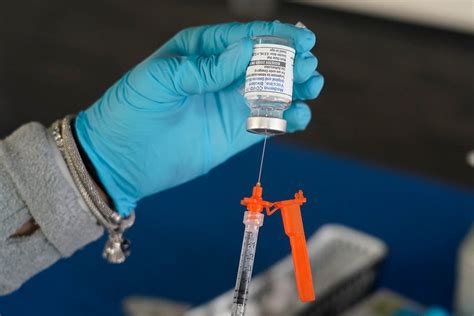Can Jehovah Witnesses Get Vaccinated

The question of whether Jehovah's Witnesses can get vaccinated is a complex one, steeped in religious doctrine and personal conviction. As a religious group known for their strict adherence to biblical teachings, Jehovah's Witnesses have historically been cautious when it comes to medical interventions, including vaccinations. However, the official stance of the organization has evolved over time, reflecting a nuanced understanding of the role of medicine in preserving life and health.
Historical Context and Evolution of Stance

Historically, Jehovah’s Witnesses were known for their reluctance to accept certain medical treatments, including blood transfusions, which they believed were forbidden by the Bible. This stance led to significant legal and ethical debates, particularly in cases where minors were involved. Over time, the organization has clarified its position on various medical procedures, aiming to balance religious beliefs with the practical realities of healthcare.
Vaccination Policy
Regarding vaccinations, the official policy of Jehovah’s Witnesses is more permissive than restrictive. According to the organization’s literature and public statements, Jehovah’s Witnesses are not prohibited from receiving vaccinations. The decision to vaccinate is left to the individual’s conscience, guided by their understanding of biblical principles and the specific circumstances of their health and the health of those around them.
| Aspect of Vaccination Policy | Position of Jehovah's Witnesses |
|---|---|
| Prohibition | No explicit prohibition against vaccinations |
| Personal Choice | Decision to vaccinate is left to individual conscience |
| Guiding Principles | Biblical teachings and personal health circumstances |

Key Considerations and Misconceptions

A common misconception is that Jehovah’s Witnesses categorically refuse all medical treatments, including vaccinations. However, this is not accurate. While there are specific religious beliefs that guide their decisions, such as the refusal of blood transfusions, the organization encourages its members to seek medical care and make informed decisions about their health. The key consideration for Jehovah’s Witnesses, as with any decision, is how it aligns with their religious beliefs and values.
Public Health Perspective
From a public health perspective, vaccinations play a critical role in preventing the spread of infectious diseases and protecting vulnerable populations. The decision to vaccinate not only affects the individual but also contributes to herd immunity, which is essential for controlling outbreaks. Understanding the vaccination policies of different religious groups, including Jehovah’s Witnesses, can help in developing targeted public health strategies that respect individual beliefs while promoting community health.
Key Points
- Jehovah's Witnesses are not prohibited from receiving vaccinations by their religious doctrine.
- The decision to vaccinate is a personal choice, guided by individual conscience and understanding of biblical teachings.
- The organization's stance on medical treatments is nuanced, reflecting a balance between religious beliefs and the practical aspects of healthcare.
- Public health considerations emphasize the importance of vaccinations in preventing disease spread and achieving herd immunity.
- Respect for individual beliefs and values is crucial in promoting public health strategies that are effective and respectful of diverse communities.
In conclusion, while the question of whether Jehovah's Witnesses can get vaccinated may seem straightforward, it touches on complex issues of religious freedom, personal choice, and public health. By understanding the nuances of the organization's stance on vaccinations, we can better appreciate the interplay between religious beliefs and healthcare decisions, ultimately fostering a more inclusive and respectful approach to public health initiatives.
Are Jehovah’s Witnesses allowed to receive vaccinations according to their religious doctrine?
+Yes, Jehovah’s Witnesses are not prohibited from receiving vaccinations. The decision to vaccinate is left to the individual’s conscience, guided by their understanding of biblical principles and health circumstances.
How does the organization’s stance on vaccinations reflect its overall approach to healthcare and religious beliefs?
+The stance on vaccinations underscores the organization’s nuanced approach to balancing religious beliefs with practical healthcare considerations. It reflects an evolving understanding that respects individual choices while promoting health and well-being.
What are the implications of Jehovah’s Witnesses’ vaccination policy for public health strategies?
+The policy implies that public health initiatives should respect individual beliefs and values. It suggests the need for targeted strategies that educate and support diverse communities in making informed health decisions, including those related to vaccinations.



